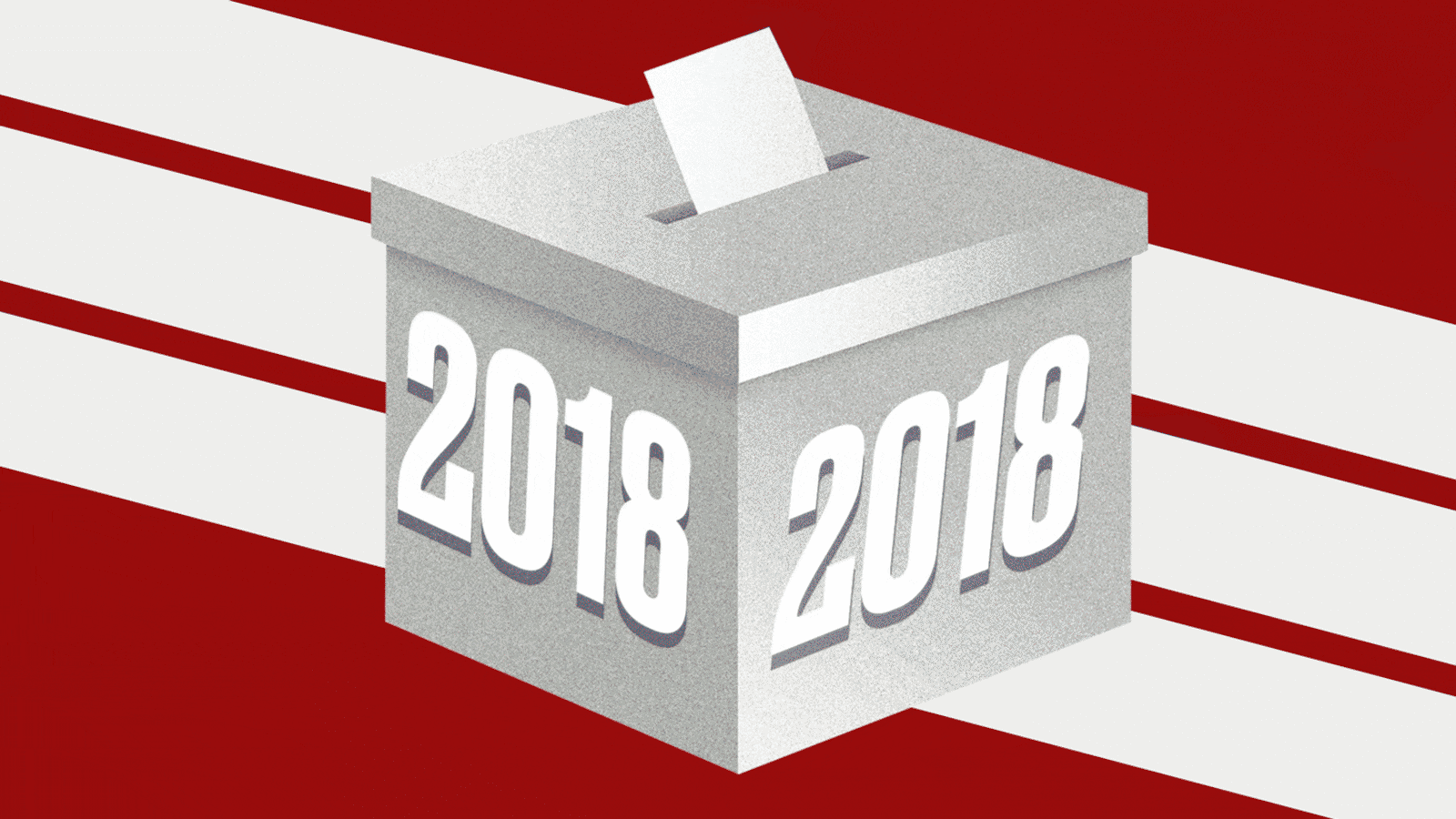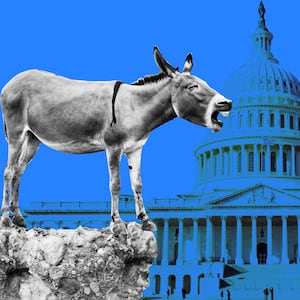Much of the coverage about the midterm elections has centered around Democratic gains in the House of Representatives. And deservedly so. The party managed to take control of that chamber for the first time since 2010, in the process ushering in their biggest freshman class since the Watergate era and opening up the possibilities of real oversight of President Donald Trump.
But the impact of the 2018 elections was not felt squarely in Washington, D.C. Indeed, local politics proved to be fertile ground for progressive organizing, with potentially profound policy impacts.
For anyone looking to push back against Trump’s policy of family separations, some of Election Night’s most important results came from sheriff elections in North Carolina. For those worried about restrictions on access to the polls, voters around the country took matters into their own hands by expanding the franchise and easing the voter registration process. And for people concerned about excessive jailing, a wave of prosecutors won their elections on a pledge to fight mass incarceration.
By contesting elections for often-neglected positions—think prosecutor, sheriff, secretary of state—and by circumventing elected officials via popular initiative drives, progressives gained a foothold in new spaces from which to transform the country’s laws and practices. In the process, the illustrated two often underappreciated truisms about politics: that state and local officials possess tremendous power and that change can be both top down and bottom up.
Health Care Access Spreading
In Idaho, Nebraska, and Utah—three red states whose leaders have refused to expand Medicaid as provided by the Affordable Care Act—voters approved the expansion in referendums on Election Day. In Idaho, the grassroots group “Reclaim Idaho” made this into the first popular initiative to make it on to the ballot since 2012.
The result is thousands of more people getting access to public health care, all without Congress lifting a finger. And defending Medicaid was a salient issue elsewhere too. In Iowa, a state beset by well-documented health-care problems since it privatized Medicaid, the auditor election saw the victory of Democrat Rob Sand, who ran against the Republican incumbent on investigating the private companies that are managing the state's Medicaid programs.
A Pushback on ICE
Some national Democrats have adopted the posture that the country needs to abolish Immigration and Customs Enforcement (ICE). That won’t happen anytime soon. But pushback against the agency was delivered on Election Day in the form of defeat of various sheriffs whose assistance ICE has enjoyed.
ICE uses various sorts of contracts and financial promises to secure the cooperation of local law enforcement. That cooperation can take the form of detaining people believed to be ICE suspects, identifying the status of people held at the county jail, or sharing information like detainees’ birth country.
Immigrants’ rights advocates have worked to cast light on these arrangements. And in Hennepin County, Minnesota (Minneapolis), Ulster County, New York (Kingston), Wake County, North Carolina (Raleigh) and Mecklenburg County, North Carolina (Charlotte), among others, sheriffs who had honored such partnerships lost to challengers who pledged to curtail cooperation and withdraw from existing ICE deals. The repudiation was especially stark considering the stature of some of the defeated incumbents. Rich Stanek of Minneapolis was expected to be the next president of the National Sheriffs’ Association.
Voting Rights Expanded
Over the past few years, state officials (most notoriously Kris Kobach in Kansas) pushed laws that greatly diminished access to the franchise. But with those efforts came renewed attention on how burdensome it can be to vote.
In 2018, candidates ran on expanding voting rights rather than on managing the status quo. Kathleen Clyde, the Democratic nominee for secretary of state in Ohio, committed to ending the aggressive voter purges that the Supreme Court authorized in June. The Democratic candidate for the North Carolina Supreme Court, Anita Earls, has worked as a civil rights lawyer in a state that keeps adopting voting laws that courts deem suppressive. In Harris County, Texas (Houston), Diane Trautman ran for county clerk by promising to blunt the impact of the state's voter ID law.
Such candidates had a mixed record last week (Earls and Trautman won, while Clyde lost), but even in defeat they did push some of their opponents to at least change their rhetoric. Bill Galvin, the longtime Secretary of State of Massachusetts and Democrat, has been criticized for his passivity toward voting rights; he has even displayed hostility toward measures like automatic voter registration. This year, Galvin was challenged in the Democratic primary by Josh Zakim, a city council member from Boston who focused his campaign on making voting easier. Galvin won reelection, but not before rebranding himself as a champion of automatic voter registration.
When asked to expand voting rights directly via referendums, voters did so overwhelmingly. Michigan and Nevada adopted automatic voter registration, Michigan and Maryland approved same-day voter registration, and Floridians restored the rights of individuals who complete a felony conviction, which could enfranchise nearly 1.5 million people, thanks to organizing by formerly incarcerated members of the grassroots group the Florida Rights Restoration Coalition.
Criminal Justice Advocates Takeover Key Offices
Prosecutors enjoy great discretion on everything from how severe a charge to file to whether to seek burdensome conditions of release for people who are not yet convicted.
But the choices that have led the United States to its record-high incarceration rates and racial disparities were all under a microscope this year. And incumbents with punitive records found themselves on the defensive against challengers pledging to transform the criminal justice system.
Andrea Harrington was elected district attorney in Berkshire County, Mass., after telling The Appeal that “the conversation over crime has been fear-based” and that the system as currently constructed “doesn’t work.” In Dallas, John Creuzot defeated incumbent District Attorney Faith Johnson after pledging to reduce prison admissions by at least 15 percent during his four-year term. Rachael Rollins, who was just elected district attorney in Boston, ran by publicizing a list of offenses for which she will adopt a default policy to not prosecute.
One ubiquitous issue in local elections this year was bail reform. And, here too, reform is now on the horizon. In New York, where Democrats gained control of the state government, lawmakers say that bail reform is high on their agenda. And in St. Louis County, Missouri, Wesley Bell made curtailing cash bail a major promise in his campaign for prosecutor. Bell’s upset victory was sustained by the activism of groups involved in the 2014 Ferguson protests Prosecuting Attorney Bob McCulloch, the man Bell defeated.
The Big Picture
To be sure, the transformations brought by these local elections will remain fragile absent national change. Voting rights suffer greatly absent federal protections, as their retrenchment in the wake of the Supreme Court’s 2013 decision gutting the Voting Rights Act has illustrated. And changing federal authorities’ attitude toward immigration enforcement would go further than limiting local jurisdictions’ cooperation.
Still, these local officials enjoy tremendous discretion to make immediate impacts on how hard it is to vote, how high the incarceration rate will remain, and how safe immigrant communities will feel. They are also uniquely suited to changing the conversation within the Democratic Party.
And as long as federal avenues for progressive legislation are largely blocked off, they serve as an alternative picture of what else the country’s political landscape could look like.
Progressives woke up to a new country the morning after the election. They may not be fully aware of how deep their gains were.
Daniel Nichanian is a senior fellow at the Justice Collaborative and the writer of The Appeal: Political Report.






